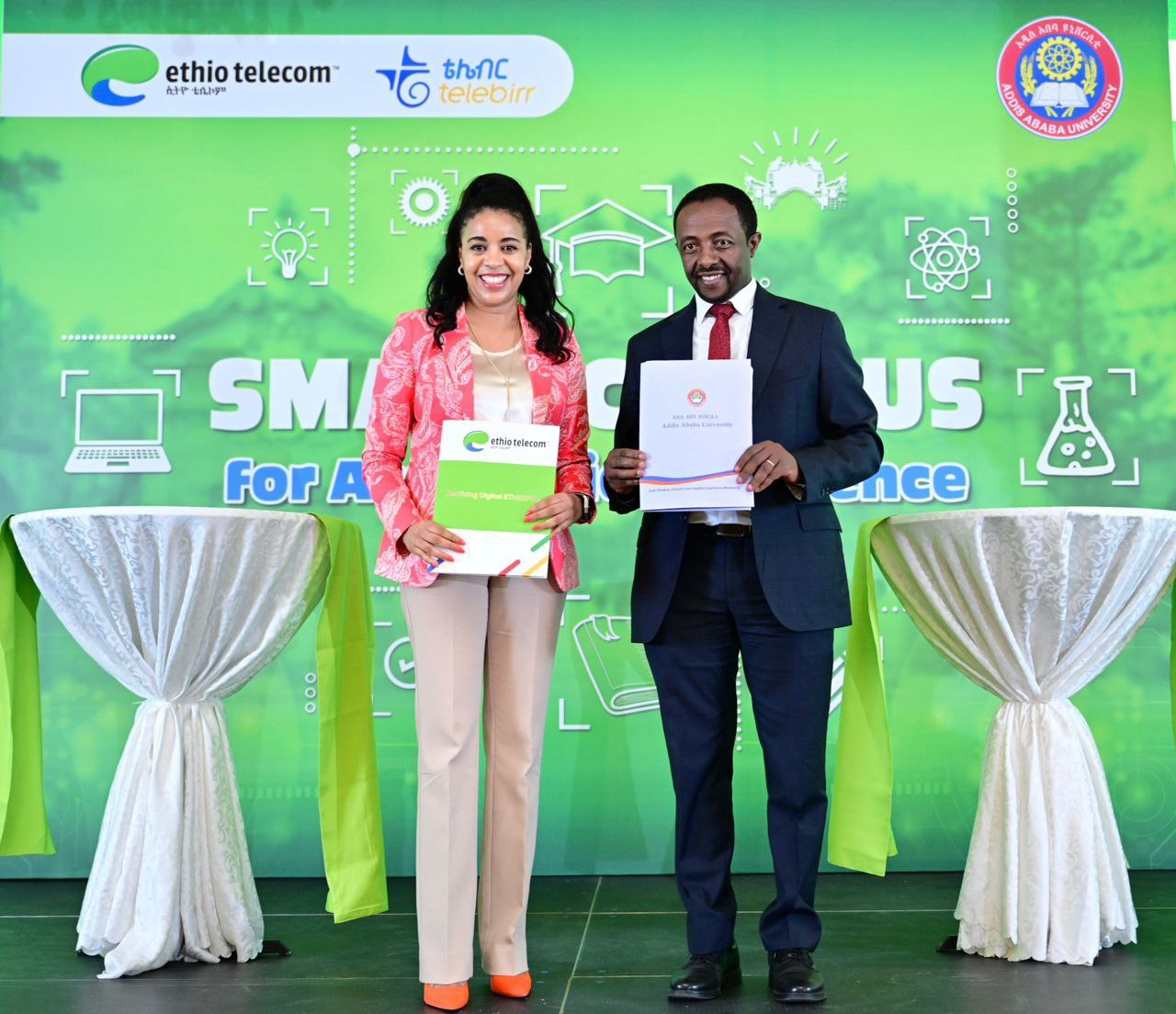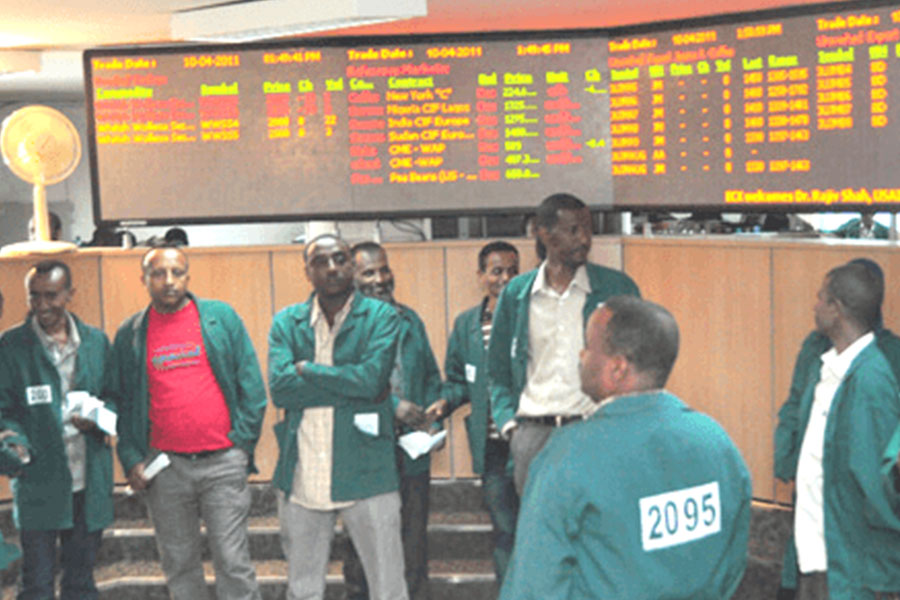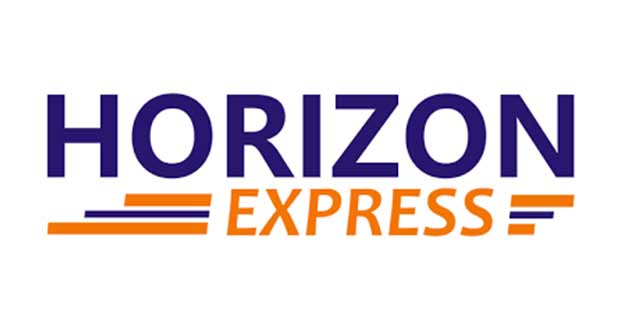
Terra Global Energy Developers, a California-based energy company, has been embroiled in a dispute with the government over the Debre Birhan Wind Project, which was recently added to the list of projects to be developed in a public-private partnership (PPP) arrangement.
Owned by an American of Ethiopian origin, the company signed a memorandum of understanding (MoU) in 2012 with executives at Ethiopian Electric Power (EEP) to develop the farm on an engineering, procurement and construction (EPC) basis. Under this arrangement, a contractor is responsible for work from design to procurement and from construction to the commissioning of the project.
However, last month the board of the Public-Private Partnership Directorate approved the project's development under the PPP scheme. And the project was set to be bid on by private companies who wish to build and operate the farm. In parallel though, Terra Global has gone a long way in developing the project and preparations to realise what would be 200MW of capacity from wind, estimated to cost up to 360 million dollars.
It proceeded to invite independent consultants to conduct the feasibility studies, where nine responded including Factor-4 Energy Project, Energy Workstatt Consultant, Harness Energy, Opus Ventus, Sgurr Energy, Environmental Forward Observer, Addis Geo Tech, Lightener Logistics and Trianon Partners. Terra Global also completed a tender process to procure wind turbine generators from a turnkey construction contractor and secured financing for the construction of the project from a consortium of banks in China. The consultants conducted an 18-month feasibility study and delivered it to Terra Global, which then submitted it along with technical, economic and financial documents to EEP in October 2015.
EEP invited the company for the final contract negotiations in December 2015.
Upon arrival for the negotiations, the company was informed that there had been a change in the government’s policy on the execution of power projects that requires forming a power purchase agreement (PPA) and necessitates a bidding process. The contract was switched to that of an independent power producer (IPP) agreement, in which a private company develops a power plant, generates power and sells it to the government.
This led to further review and deliberation on the pending project. At the beginning of 2016, the energy company reviewed its proposal documents in response to the policy change and re-submitted a revised proposal to EEP to be allowed to continue its work on an independent power producer (IPP) basis. Despite sending consecutive letters, the company received no response from the government, according to Dereje Abebe, CEO of Terra Global Energy Developers, which claims that it spent 4.5 million dollars over the last eight years in preparation for the project.
“We're victims of bureaucracy," Dereje told Fortune. "We've sent letters to former Prime Minister Hailemariam Desalegn and Prime Minister Abiy Ahmed (PhD).”
In the interim, the government approved a new law in 2018 that allows collaborations with the private sector to develop mega-projects, including energy plants. Initially, the board of the PPP Directorate approved 17 projects, including solar, hydropower and road projects. Debre Birhan Wind Project was not on the list.
In April 2019, the senior management of EEP and Terra Global had a discussion on the revised proposal, and EEP forwarded a recommendation letter to its board to exempt Terra Global from a bidding process on the Debre Birhan Wind Project. Lacking a response from EEP, the company sent a letter to the Ministry of Water, Irrigation & Energy detailing the waiver request and asking to commence the construction of the project. Seleshi Bekele (PhD), minister of Water, Irrigation & Energy, wrote a letter last September making it clear that the project should not be included in the PPP, since it was under negotiations before the legislation of the PPP proclamation.
The waiver does not mean it is exclusively given to Terra Global, and the company should conduct face-to-face negotiations with EEP, according to Seleshi, who is also a board member of the PPP Directorate.
“The public's interest is at stake too," Seleshi told Fortune. "Hence, the company should aggressively work on the negotiations and conclude them. The government is to decide if the company isn't holding up its end of the bargain."
"It's better for the public interest to keep the two options, although there is nothing decided on the contradiction," said Ashebir Balcha, CEO of Ethiopian Electric Power, "If Terra can't raise the needed financing, then the government can take this option and Terra would be reimbursed for all of their spending. This can be done by either the government or the winner of the bidding process of the project."
Subsequent to Seleshi's waiver, EEP called Terra Global for negotiations on the project of the Debre Birhan Wind Project at the end of December 2019. However, executives of Terra Global postponed the meeting due to COVID-19 until August. It was a shock to the executives of Terra Global to learn that the PPP Directorate under the Ministry of Finance had tabled the project, along with five more wind projects that were approved late last month, to the board in January.
Terra Global swiftly responded with a long letter asking for clarifications, while at the end of February, its executives floated a tender requesting bidders to submit proposals to develop the Debre Berhan Wind Project in a joint venture arrangement.
The company has issued a bid to work on the project jointly, which shows that they cannot develop the project, according to Moges Mekonnen, public relations director at EEP.
"Besides, the company hasn’t sent the necessary documents on financial matters for the project,” said Moges.
It is a statement Dereje refutes. He claimed Terra Global has submitted all the documents in the last eight years, and that the EEP does not have any ground showing that the company does not have the capacity to complete the project.
The project will take at least another year to go through a bidding process. If the company provides the mandatory documents for the negotiations and arranges its legal representation in the country, then it is going to be considered a benefit to the public's interest, according to Moges.
The key to the dispute is whether Terra has grounds to claim it has a binding commitment from the government to pursue the project. Not according to Aschalew Ashagre, assistant professor at the School of Law & Governance at Addis Abeba University and a practicing attorney. A memorandum of understanding is not binding at any level since it is more like a wish-list, he told Fortune.
"If the project somehow ends up with someone other than the company, and the government is at fault without even having a contractual agreement, the company can ask for a compensation fee from the government for all of its expenses," said Aschalew.
That seems the path Dereje is willing to take. He is determined to continue with the pace his company has taken over the years, hoping that the government will not change course on this project.
"We'll not get caught up in the confusion," Dereje told Fortune. "But if things turn out to be worse, which we hope they won't, we'll take legal actions against EEP."
PUBLISHED ON
[ VOL
, NO
]

Radar | Mar 16,2024

Radar | Jun 30,2024

Radar | May 14,2022

Radar | Jan 05,2019

Fortune News | Oct 24,2020

Fortune News | Aug 20,2022

Fortune News | Sep 08,2019

Radar | Feb 10,2024

Radar | May 04,2024

Commentaries | Apr 06,2024

Dec 22 , 2024 . By TIZITA SHEWAFERAW
Charged with transforming colossal state-owned enterprises into modern and competitiv...

Aug 18 , 2024 . By AKSAH ITALO
Although predictable Yonas Zerihun's job in the ride-hailing service is not immune to...

Jul 28 , 2024 . By TIZITA SHEWAFERAW
Unhabitual, perhaps too many, Samuel Gebreyohannes, 38, used to occasionally enjoy a couple of beers at breakfast. However, he recently swit...

Jul 13 , 2024 . By AKSAH ITALO
Investors who rely on tractors, trucks, and field vehicles for commuting, transporting commodities, and f...

Jun 28 , 2025
Meseret Damtie, the assertive auditor general, has never been shy about naming names...

Jun 21 , 2025
A well-worn adage says, “Budget is not destiny, but it is direction.” Examining t...

Jun 14 , 2025
Yet again, the Horn of Africa is bracing for trouble. A region already frayed by wars...

Jun 7 , 2025
Few promises shine brighter in Addis Abeba than the pledge of a roof for every family...